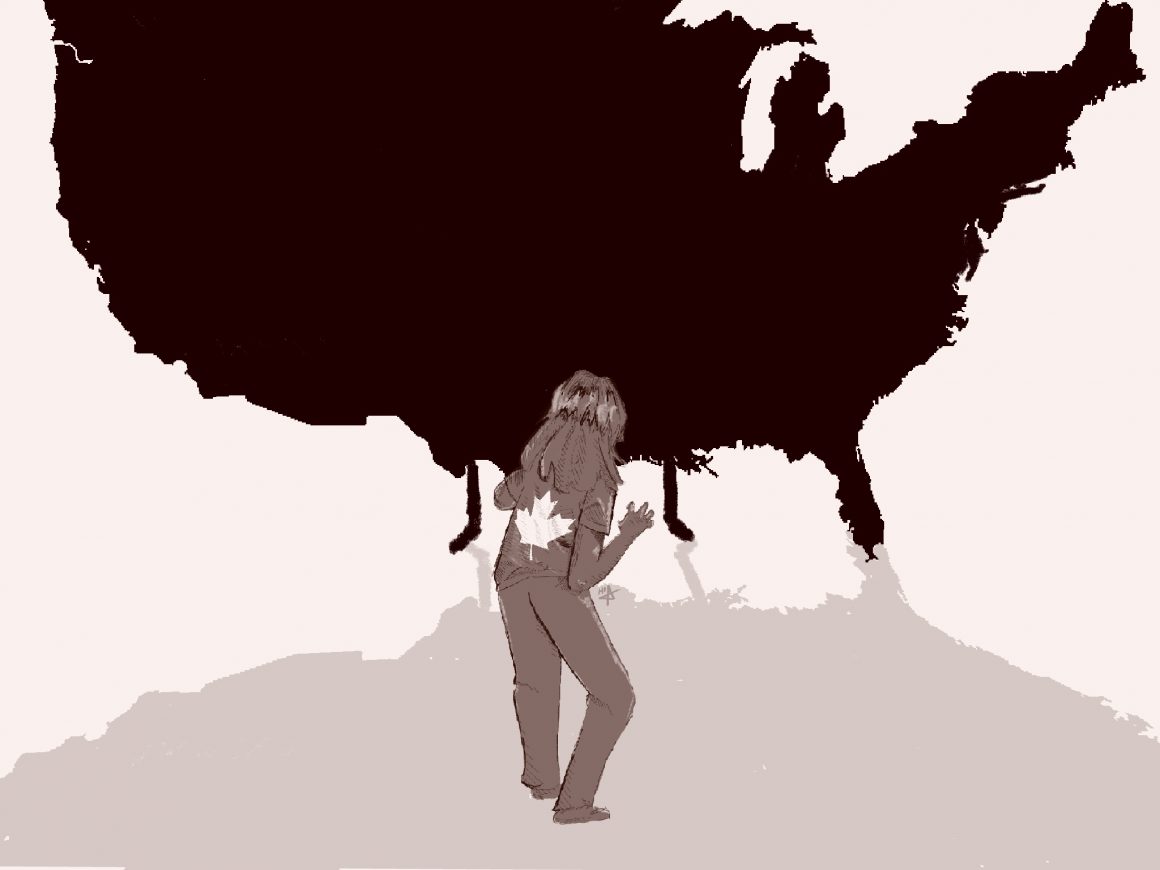
Neighbourly grievances: How being Canadian feels in a time of American crisis
By Eda Kamal, March 2 2025—
A critical Canadian personality trait is that we are not American. You’ll say it when on vacation, and you’ll see it in our advertising. You might have sat down to watch the SuperBowl a few weekends ago, or kept up to date with their election polling back in November. They’re hard to avoid and harder to ignore when so much of our culture, values, and history is intertwined. On top of that, we have been trade partners for dozens of decades and allies in almost every global conflict. They are our closest neighbour in both proximity and relations, which almost mandates a healthy relationship between nations in order to keep not only each other but the world at peace.
So when President Donald Trump and colleagues continue making threats of annexing Canada and enacting tariffs on us, you’d understand the feeling of betrayal and shock that many Canadians experienced, and the reaction that followed. From booing the American anthem at sports games to boycotting American products at the grocery store, it’s as if this large-scale sibling rivalry just keeps escalating every day. The question now is —how did we even get here? And what can we do about it?
Canada is significantly younger as an independent nation when compared to the United States; it would be unfair to say we didn’t take notes from them. Both countries have similarly heinous records of colonialism, discrimination against people of colour, and internment during both World Wars. However, Canada beat the United States to it in some significant endeavours such as giving women the right to vote and legalizing gay marriage.
In our long-shared history, the United States has been the only country Canada has shared land borders with. Though not fully common, the multifaceted Canadian and American national cultures are similar and incomparable to any other nation. We shouldn’t be fighting, not with this many commonalities and this much power. This has been understood for many, many years; and there has always been an air of respect even when political and ideological differences arose.
The rise of political extremism that has accompanied Trump’s re-entry at the White House is arguably a testament to what we should expect from our neighbours in the next four years, and the actions of the last few weeks may have redefined Canadian-American relations even further than this term. “Unforgivable”, “irreparable”, “destructive” — these aren’t the words of politicians, they are the words of my peers. And they aren’t only directed at the new American regime — they’re directed at the nation as a whole.
One of the main emotions I have observed and described from Canadians is anger. From Americans, it’s hard to know without being on their soil and in their shoes. Perhaps scrolling through TikTok or Instagram you’ve seen their sentiments of embarrassment, or regret, or confusion. Many of them may not even look into Canadian news and politics enough to know we as a collective are reacting this way. The perception seems to be that while they influence us greatly, we haven’t been able to influence them as much. As discussed before, this perception isn’t totally true. And I believe the very discussion of an “us” versus “them” may be what’s causing the problem in the first place.
When Donald Trump threatens Canada as he has been doing recently, he isn’t thinking about the good of the Canadian or American people. We have consistently benefitted from each other, and that can’t stop at his beck and call. We cannot as a country stoop to the same level. As Canadians, we need to understand today’s Great American Plight. While the government is meant to be a representation of the people, it’s pretty clear that that’s not what’s happening right now.
Maybe the last thing on your mind right now is feeling bad for “the other guys”, as in an election year as crucial as this one, our national wellbeing is imperative. However, we must learn to utilize our worries for ourselves as empathy for those who, frankly, are in a bit of a crisis right now. Rather than being bitter at their government’s decisions, we need to work on making sure the same doesn’t happen to us. We should focus on building ourselves up to lead by example the same way we’ve done in the past. While we should stay assertive as a nation, as people, we should stay kind.
This article is a part of our Voices section and does not necessarily reflect the views of the Gauntlet editorial board.
